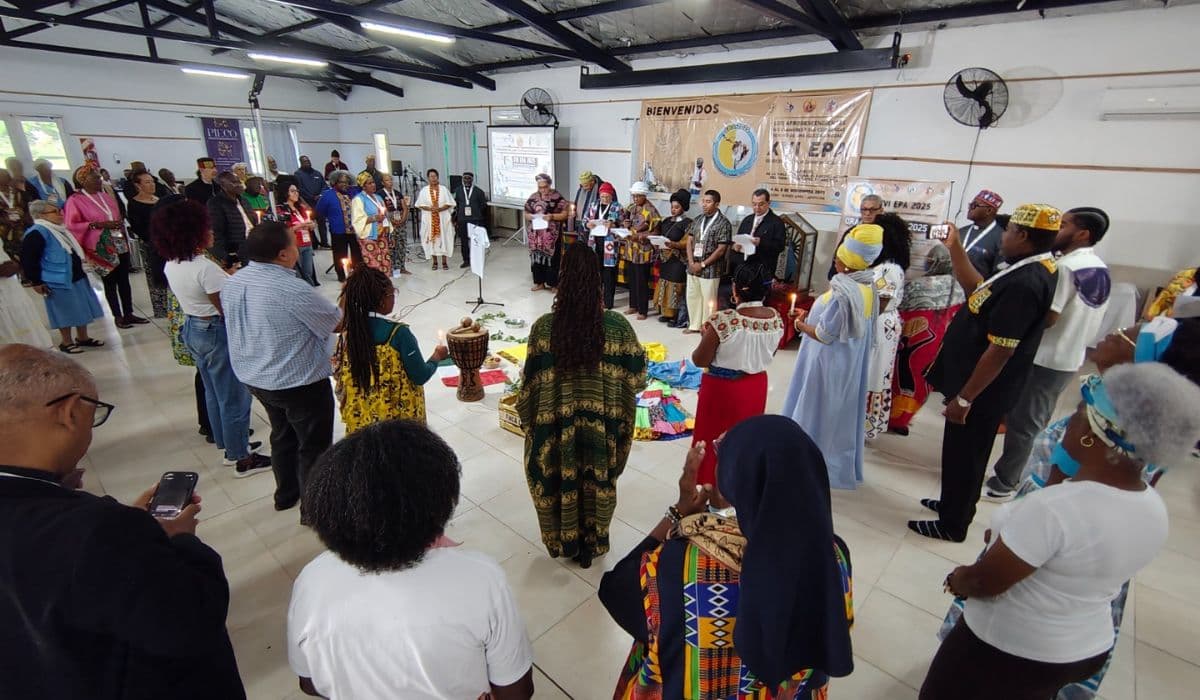SÃO PAULO, Brazil – Members of Black pastoral commissions from Latin American and Caribbean nations gathered earlier this month in Luján, Argentina, to discuss what they want in the Church.
The 16th Latin American and Caribbean Pastoral Encounter (EPA) also reinforced the participants’ claim for more visibility in the Church, something that could require, among other things, a document issued by Pope Leo XIV about the situation of Black Latin American and Caribbean Catholics.
The idea of asking the pontiff to release a letter addressing the particularities of Black Catholics in the region first appeared years ago and was discussed with Pope Francis. With his death in April of 2025, the group now expects Leo to resume the project.
“We hope the pope will release a document about Black people – a document that would bring not his word, but the Church’s word about us,” Bishop Zanoni Castro of the Archdiocese of Feira de Santana, who is also the head of the Black Pastoral Ministry in Brazil, told Crux.
According to Castro, Pope Leo has maintained Pope Francis’s commitment to the needs of Black people in Latin America.
“We have been in dialogue with the Vatican in order to promote that plan,” Castro said.
The pontifical letter would deal with themes connected to the plight of Afro Latin Americans and Caribbeans, topics that were discussed during the EPA, which was held Nov. 4-7 and was supported by the Diocese of Merlo-Moreno, working with the Pontifical Commission for Latin America and the Latin American Episcopal Council.
One of the major talking points was the invisibility of Black people in Latin America, both in the Church and in society as a whole. That’s why the event looked for inspiration in the figure of Manuel Costa de los Ríos, known as Negro Manuel, an enslaved African man who saw the first miracle of Our Lady of Luján, in 1631, and took care of the image for more than 50 years.
The Virgin became the patroness of Argentina, but Manuel was mostly forgotten – as the whole Afro Argentine community. Only in 2016, his life-long devotion to the service of Our Lady of Luján was finally recognized with the launching the first steps towards canonization.
Afro Argentines, who currently are just 0.7 percent of the South American country’s population, made up more than 40 percent of Argentines in the 18th century and had a strong cultural impact on the country. The traditional musical genre and dance named tango, for instance, is considered to have great African influence.
“In Argentina, it’s like Black people never existed. But the devotion to Negro Manuel illuminates the rediscovery of that entire populational group,” Castro explained.
In the Latin American Church, the number of Black priests and bishops has been growing over the past decade, but it’s still lower than it should be according to their demographic proportion. Even when it comes to lay Catholics, Blacks tend to occupy fewer positions.
“One of our demands is for more acknowledgement inside the ecclesial structures and in the documents issued by the Church. The vision of the people of African descent must be a transversal axis in the region’s Church,” Eunice Meneses, who heads communications at the Archdiocese of Panama, told Crux.
Meneses said that the EPA participants also discussed the migration crisis in Latin America and the Caribbean, focusing on Black groups of immigrants, and the growing racism in the region.
“We talked about the need to strengthen the Afro Pastoral Ministry all over the region, fully integrating it into the Church structure,” she said.
According to Meneses, many times the most basic Church structures do not give particular pastoral attention for Blacks.
According to Zanoni Castro, the Black “way of being Catholic doesn’t identify with European culture, so it must be anchored on diversity.”
The 16th EPA gathered 144 Black Catholics from Latin American and Caribbean countries. One of their goals is to establish Black Pastoral Ministries over the next three years in countries where they don’t exist. Their next meeting is scheduled to happen in 2028, in Feira de Santana, Brazil.
“We discussed our pain and our demands, but didn’t forget to have hope. We need to see God’s steps through the demands we have with eyes of hope,” said Sister Ruperta Palacios, a member of the Afro Mexican Pastoral Ministry.















